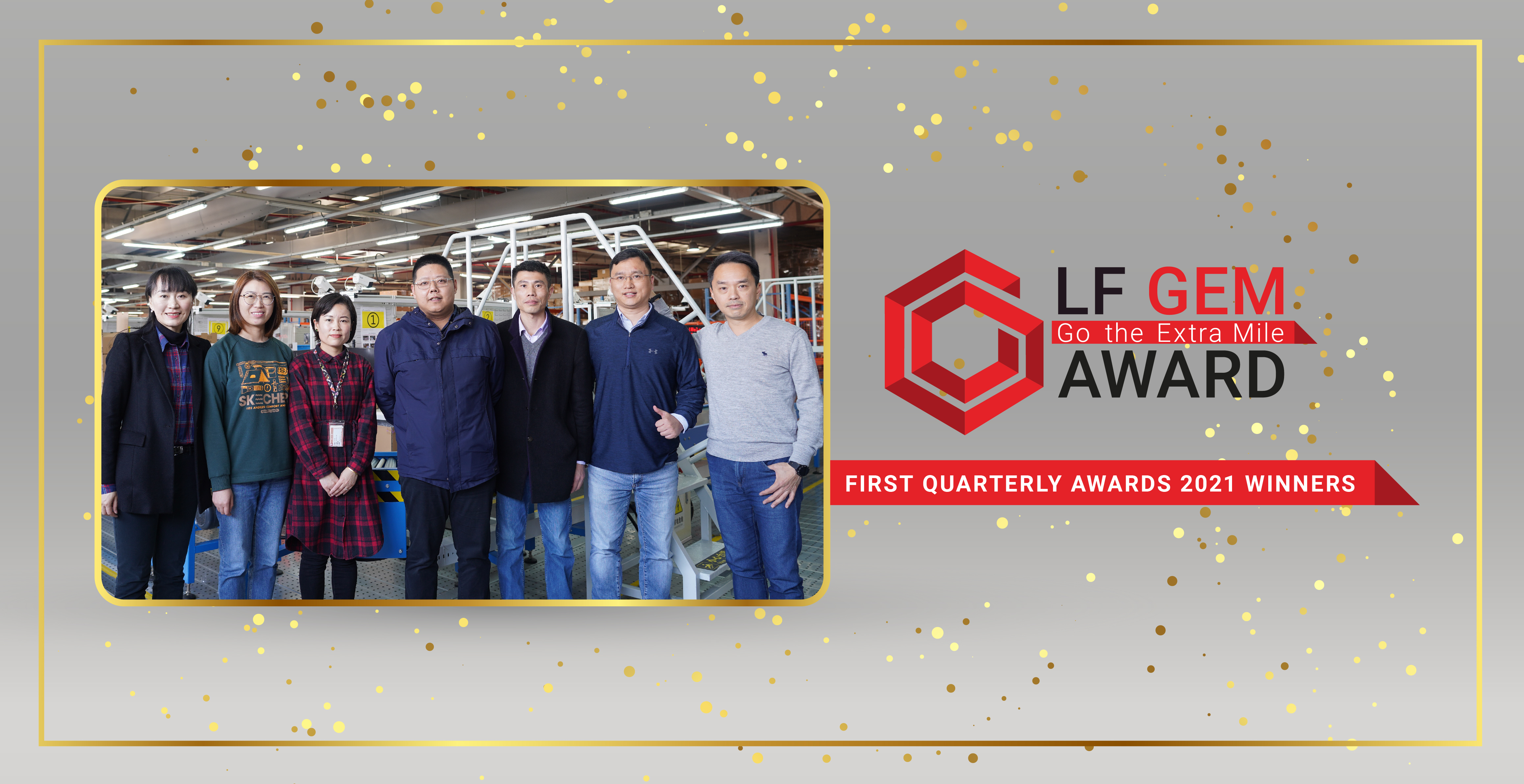As part of our culture of operational excellence, we celebrate and reward colleagues who implement improvement initiatives into our daily operations and go the extra mile.
The LF GEM Awards
Launched in 2021, the LF GEM Awards recognizes individuals and teams in Li & Fung and LF Logistics that have gone the extra mile to deliver extraordinary results for the company, our customers, vendors or other stakeholders. Each award entry is judged against the 4Cs: Contribution, Creativity, Collaboration and a Can-do Attitude. Ten award winners will be selected every quarter to each win a cash prize.
The LF GEM Award is also about celebrating the successes of our colleagues. To build a culture of recognizing success, colleagues are encouraged to nominate an individual or team who they think deserves to win an award. Nominators are also eligible to win a cash prize if their nominee receives an award.

Global Continuous Improvement Oleanpics (CIO) Awards

Our Global CIO Awards recognizes colleagues who have effectively implemented improvement initiatives into daily operations that have resulted in increased operational productivity, higher service, quality and better environmental, health and safety conditions.
Teams from all over the world are tasked to submit and present their innovative ideas to senior leaders of LF Logistics under our key focus areas: Productivity Improvement, Procurement Savings, Quality, Process, Control and EHS improvement during the Global CIO event. The countries that implement and present the best ideas are awarded.
The CIO competition was first held in the Philippines in 2016 as a local initiative and has now rolled out on a global level following its success.
Case study: LF Logistics China’s doTERRA VAS optimization project wins a Gold CIO Award and LF GEM Award

As business volume increased for LF Logistics customer, doTERRA, an essential oils company, it also brought an increase in labor and space requirements, resulting in multiple operational challenges. By applying Lean-Sigma tools, the team in Shanghai and Jiangsu found that manual labeling and scanning of individual bottles was the single biggest contributor to the bottleneck and waste. By using automatic labeling, the team successfully reduced the number of steps in the workflow from 18 to 10 and increased productivity by 272%, from 161 pieces per hour to 600 pieces per hour. In addition, re-work rate decreased by 96% from 5% to 0.2%.


